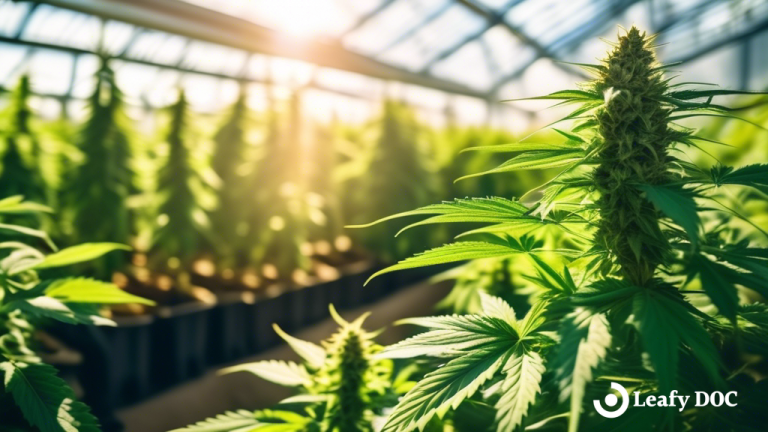Opioid Dependency
Can medical cannabis help patients suffering from symptoms of Opioid dependency? Find out more below.
What is Opioid Dependency?
Opioid dependency is when a person becomes physically and/or psychologically dependent on opioid drugs. Opioids are a class of drugs that include prescription pain relievers such as oxycodone, hydrocodone, and fentanyl, as well as illegal drugs such as heroin.
When a person uses opioids repeatedly, their body can develop a tolerance to the drug, meaning they need to take more of it to achieve the same effect. Over time, this can lead to physical dependence, where the body relies on the drug to function normally. If a person stops taking opioids abruptly, they can experience withdrawal symptoms, which can be very uncomfortable and even life-threatening.
What causes it?
There is no single cause of opioid dependency, as it can result from a combination of genetic, environmental, and behavioral factors. Some people may be more susceptible to opioid dependency due to genetic factors affecting how their bodies process and respond to opioids. Other risk factors for opioid dependency can include a history of substance abuse or addiction, chronic pain, mental health conditions such as anxiety or depression, and a history of trauma or abuse.
Environmental factors can also play a role in the development of opioid dependency. For example, people who live in areas with high rates of opioid prescription may be more likely to develop opioid dependency. Additionally, social and cultural norms around drug use can influence a person’s risk of developing opioid dependency.
Finally, behaviors such as using opioids to cope with stress or emotional pain can increase the likelihood of developing opioid dependency. People who use opioids recreationally may also be at greater risk of developing opioid dependency, as regular use can lead to tolerance and dependence over time. It’s important to note that while certain factors may increase a person’s risk of developing opioid dependency, anyone can become dependent on opioids if they use them regularly over time.
How common is it?
Opioid dependency is a serious problem in many countries worldwide, including the United States. According to the National Institute on Drug Abuse (NIDA), more than 10 million Americans misused opioids in 2019, and more than 47,000 people died from opioid overdoses. Opioid dependency can affect people of all ages, genders, and backgrounds, and it is important to seek help if you or someone you know is struggling with this condition.
Signs & Symptoms
The signs and symptoms of opioid dependency can vary depending on the individual, the severity of the dependence, and the type of opioid being used. Some common signs and symptoms of opioid addiction include the following:
- Increased tolerance to the drug: A person may need to take higher doses of opioids to achieve the desired effect.
- Withdrawal symptoms when opioids are not taken: These symptoms can include sweating, nausea, vomiting, diarrhea, muscle aches, and anxiety.
- Continued use despite negative consequences: A person may continue to use opioids even if it is causing problems in their personal life, work, or relationships.
- Spending a lot of time and money obtaining and using opioids: A person may spend a significant amount of time and money receiving opioids and may prioritize drug use over other activities.
- Neglecting responsibilities: A person may neglect their home, work, or school duties due to drug use.
- Changes in mood or behavior: A person may become irritable, moody, or depressed and may withdraw from social activities.
- Injection marks: If someone injects opioids, they may have visible injection marks on their arms or other parts of their body.
Diagnosis & Treatment
Opioid dependency or addiction is a severe condition that can significantly impact a person’s health and well-being. Diagnosis and treatment of heroin and opioid addiction typically involve a combination of physical exams, psychological evaluations, and laboratory tests.
Diagnosis:
- Physical exam: A doctor will perform a physical exam to assess the physical symptoms of heroin addiction, such as skin infections, needle marks, and other signs of drug use.
- Psychological evaluation: A doctor or mental health professional may also perform a psychological evaluation to assess a person’s mental health and determine if they have co-occurring mental health conditions.
- Laboratory tests: Laboratory tests, such as urine drug screens or blood tests, may also be used to confirm the presence of heroin or other drugs in a person’s system.
Treatment:
- Medication-assisted treatment (MAT): MAT involves using medications, such as methadone, buprenorphine, or naltrexone, to help reduce cravings and withdrawal symptoms. These medications can be prescribed by a doctor and are typically used in combination with behavioral therapies.
- Behavioral therapies: Behavioral therapies, such as cognitive-behavioral therapy (CBT) or contingency management, can help individuals learn coping strategies, address underlying issues that contribute to addiction, and prevent relapse.
- Support groups: Support groups, such as Narcotics Anonymous (NA), can provide a sense of community and support for individuals in recovery.
- Residential treatment: Residential treatment programs can provide a structured environment and intensive support for individuals who need more intensive treatment for their addiction.
The most effective treatment for opioid dependency or addiction is typically a combination of medication-assisted and behavioral therapies. Individuals with heroin addiction need to work with a qualified healthcare provider to develop an individualized treatment plan that meets their needs.
Can medical marijuana help?
Medical cannabis may potentially help people recovering from opioid dependency in several ways, but it’s important to note that more research is needed to confirm these potential benefits.
Some possible ways that medical cannabis may aid in opioid dependency recovery include:
- Reducing withdrawal symptoms: Withdrawal symptoms from opioids can be severe and uncomfortable. Medical cannabis may help relieve nausea, vomiting, and anxiety.
- Managing pain: Chronic pain is a common issue for people in recovery from opioid dependency. Medical cannabis may relieve pain and inflammation, potentially reducing the need for opioid painkillers.
- Reducing cravings: Some research suggests that certain compounds in cannabis may help reduce cravings for opioids, although more research is needed to confirm this potential benefit.
- Improving sleep: Insomnia and other sleep disturbances are common during drug withdrawal and recovery. Medical cannabis may help promote sleep and reduce sleep disturbances.
- Addressing mental health issues: Many people with opioid dependency struggle with mental health issues such as anxiety, depression, and PTSD. Medical cannabis may help alleviate these symptoms, improving overall mental health and reducing the risk of relapse.
It’s important to note that while medical cannabis may benefit people recovering from opioid dependency, it is not a replacement for evidence-based treatments such as medication-assisted treatment (MAT) and behavioral therapies. People considering using medical cannabis as part of their addiction recovery should consult with a qualified healthcare provider.
Last Updated: June 14, 2024
Get Your Medical Card
Connect with a licensed physician online in minutes
Table of Contents
Keep Reading
-
Cannabis Vs Prescription Drugs: A Comprehensive Comparison
Unlock the truth about cannabis vs prescription drugs! Dive into this in-depth analysis and discover which one dominates. Don’t miss out on eye-opening revelations – click now for an enlightening read!
-
The Benefits Of Using Organic Fertilizers In Cannabis Cultivation
Discover the secrets to enhancing your cannabis cultivation with organic fertilizers. Learn how going natural can lead to healthier plants and better yields. Don’t miss out on the benefits – read now!
-
Marijuana and Mental Health: Understanding the Link and Risks
Explore the link between marijuana and mental health and gain a better understanding of the potential risks and benefits. Learn how cannabis can impact your mental well-being.



